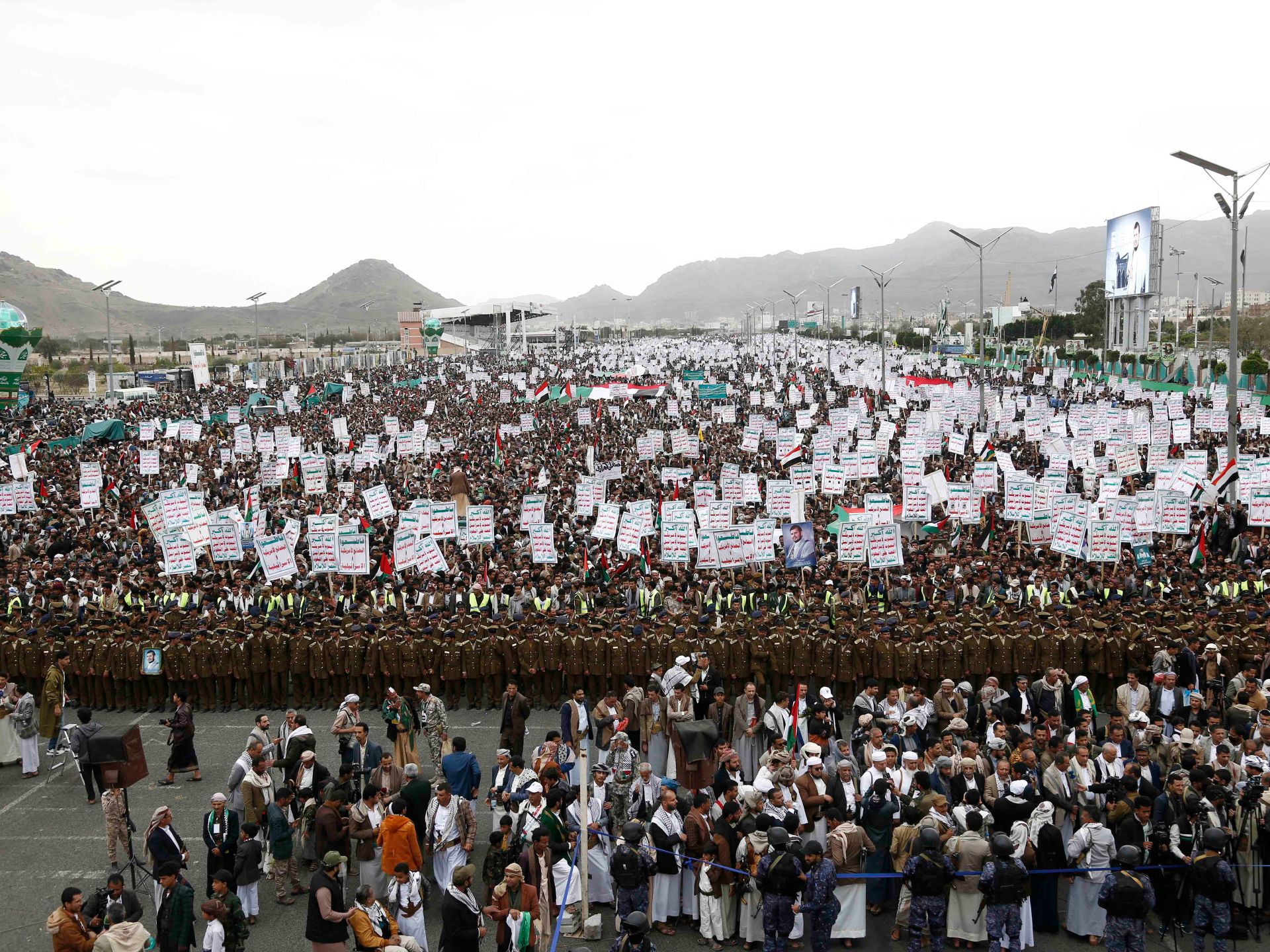Yemenis took to the squares of all sects and loyalties in support of the Palestinians and in protest against the genocide committed by the Israeli occupation army in Gaza (Anatolia)
The Yemeni street appears to the outside observer to have been united by the Al-Aqsa flood after a brutal war that lasted for about nine years, in which tens of thousands of people were killed and wounded, and it tore apart Yemen, destroyed its institutions and fragile infrastructure, separated its cities and components, and caused an economic crisis that is the worst in the world, according to the description. United Nations humanitarian organizations.
Despite this dark scene and the war entering the stage of “no solution” - in light of the absence of reason and wisdom that characterize the people of Yemen and due to the multiplicity of projects, entities and military formations with diverging loyalties - the “Al-Aqsa Flood” operation, and the tragic scene that followed in Gaza as a result of the unprecedented Israeli aggression against The sector should unite the Yemeni street from east to west, and from south to north, due to the prominent place that Palestine and its just cause occupies in the conscience of the Yemeni people of all its components.
Complex reality
However, this picture does not actually reflect the reality, which is still very complex, as the majority of the Yemeni people have completely lost confidence in all the conflicting parties, whether the Houthi group, which controls most of the northern and western governorates with its dense population and complex mountainous terrain.
Or the legitimate government with its various contradictory and conflicting components, which controls the broader geographical area and the coastal strip extending from the south of Hodeidah Governorate in the west, through the Bab al-Mandab Strait and the Gulf of Aden, all the way to the coast of the Sultanate of Oman in the east and the islands that fall within its scope, including the strategic island of Socotra and most of the ports and airports.
However, despite the recent formal replacement of the head of its government, it appears completely incapable of meeting the needs of the Yemeni people, and developing practical solutions to alleviate their complex economic suffering, or even prevent it from worsening. This is also the case with the Houthis, as the Yemeni citizen is the last person on the minds of all parties, and it even seems Completely outside of her interests.
The Houthi group took the lead in the solidarity scene and was able to translate its words and threats into actions by continuously targeting ships that have ties to Israel or are heading towards its ports, as well as American and British ships in the Red Sea, the Gulf of Aden, and the Arabian Sea.
This solidarity and the repeated US-British bombing of Yemen - in an attempt to dissuade it from its position and limit its capabilities - provided it with a golden opportunity.
This is if it wants to repair what was spoiled by the follies of the past years, and exploit this rapprochement between Yemenis that was produced by the Israeli war on Gaza and make it a real gateway to reconciliation with the Yemeni people, and seriously reconsider the way it manages the governorates that fall under its control.
Especially since it - it seems - is the only winner at this stage - so far at least - and has the greatest power, and its hand extends even to the areas that are under the control of the forces opposing it, with its ports, airports, coasts and vital facilities, thanks to the arsenal of missiles it possesses and the drones that it operated. To develop it, with clear and declared support from the Iranian regime.
Meanwhile, legitimacy, with all its contradictory components, appears to be at its weakest and most dangerous stage since the outbreak of its war with the Houthis in March 2015.
Expected initiatives
All the Yemenis hope for today - as they come out in support of Gaza and its residents in all cities and in various squares and squares - is for all the conflicting parties and entities to take the initiative - and in the wake of this noble scene of solidarity - to open roads and allow travel and movement between Yemeni cities via main roads, instead of bypass roads. The new ones put their lives in extreme danger, take them longer and require greater effort and hardship.
It is not logical to demand that the world pressure Israel to open the Gaza crossings and lift the siege on it, while the Yemeni cities are besieged and the main roads to and from them are closed.
In conclusion; As a matter of wishful thinking, we wonder: Will the flood unite their divisions, the torrent of power?! And the rats of politics and crisis projects gnawed at every dam they tried to build to unite their word and enable them to move forward in achieving the dream of building the modern Yemeni state?!
The opinions expressed in this article are those of the author and do not necessarily reflect the editorial position of Al Jazeera.

